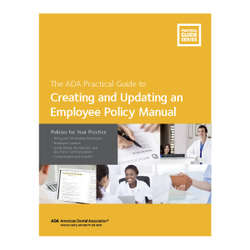Читать книгу Creating and Updating an Employee Policy Manual: Policies for Your Practice - American Dental Association - Страница 39
На сайте Литреса книга снята с продажи.
Bonding
ОглавлениеBonding new employees is a method some practices use to protect against theft. Often called a “fidelity bond” or “employee dishonesty policy,” bonding is a form of insurance against financial losses arising from dishonest acts of employees at work, such as the theft of money, medicine, or office equipment. These policies typically are issued as a part of a customized insurance package for your practice. Seldom issued separately, they are added on to your property, practice, or liability insurance for an additional premium. Most carry a deductible similar to property insurance. Because of confidentiality considerations, few of these policies survey or research personnel as a part of the service.
Bonds can apply to one individual or all employees of the practice. But in the interests of fairness and employee relations, you can’t bond for just one employee whom you suspect of dishonesty. It’s easiest, of course, to bond employees as they are hired. When you hire new team members, that’s the time to introduce bonds to all of your employees — both new and current. As you consider bonding employees, you may weigh the advantages of added protection to practice finances against the disadvantages of bonding cost and potentially negative impact on employee morale.
Often called a “fidelity bond” or “employee dishonesty policy,” bonding is a form of insurance against financial losses arising from dishonest acts of employees at work, such as the theft of money, medicine, or office equipment.
